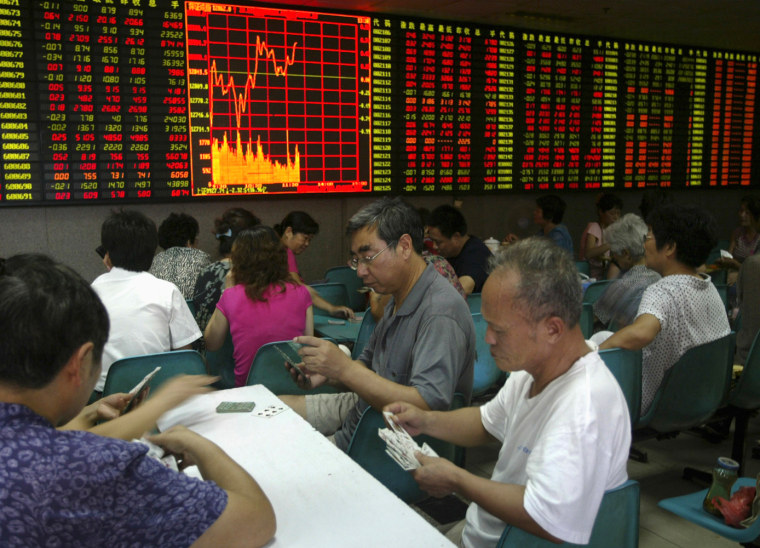It's a powerful bull market charging ahead in China, with the Shanghai Composite climbing to 4,600 today from just 2,700 at the start of the year.
With records being set almost daily, it's easy to forget sometimes that this market is immature: It doesn't have an institutional shareholder base, and it has no self-correcting mechanisms, like short selling, other than government intervention.
What that all adds up to is a lot of volatility for the hundreds of thousands investors in China and abroad.
The government is learning its lessons too, based on its last action — the sudden tripling of the stamp tax and the sell-off that it prompted. Fang Xing-hai, the former vice president of the Shanghai exchange, said the government will now likely broadcast in advance any future measures which could impact the markets.
George Yuan runs his own import export business in Shanghai, but like so many people in China, he believed the stock market would make him rich.
“At the time, everyone says it's easy money,” he said. “Also we have Olympic 2008 here, it will be better. So if you don't invest, everyone says you are stupid.”
At one point, Yuan bought and sold 10 times a day, using what he thought was a sure-fire method of picking stocks — usually depend on messages from friends, or TV shows, like the popular "Shanghai Stock Market Today."
Yuan sunk 75 percent of his savings into stocks, part of the wave of money from retail investors that has helped drive China's market to new heights.
“If you look at new accounts opening, last year we had 75 million in total. In the first half year alone, 25 million new accounts, new entrants into the stock market. That tells you the fever in the market,” said Lin Shou-kang of China International Capital Co.
In fact, Lin says 80 to 90 percent of the trading volume on the Shanghai Exchange is from retail investors who don't have many options.
Most of China's $30 trillion in savings is parked in banks, real estate, and now increasingly, stocks.
The stories here are endless: Housewives trading while the kids are at school, retirees sinking their entire savings into stocks. That puts the government in a tough position — in trying to cool the market down without causing millions to lose their nest eggs.
That's what happened in May when the government tripled the stamp tax on stock trading overnight, and sent shares plummeting 7 percent.
“One of the market's biggest challenges: increasing institutional investment, to help stabilize prices,” said Xing-hai.
“We have developed stronger mutual fund industry for more insurance companies to invest, more pension funds. So as a result, on normal trading day, 20 to 30 percent volume is now from institutions. Five years ago, only 5 percent was from institutions. We've made progress, but we need to make more progress,” he said.
Until then, the market continues to swing wildly, getting some hooked on stocks and scaring off others like Yuan.
On the day we talked, his stock had plummeted in value. He's now waiting for an opportunity to sell off some of his portfolio, with its value cut by a third during that May sell-off.
“You just be careful. If everyone gets crazy you stay cool. If everyone thinks good, you will be thinking with your own thoughts,” he said.
Now we are watching China's stock market mature, one investor at a time.
